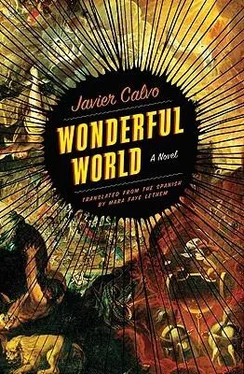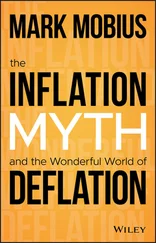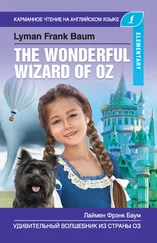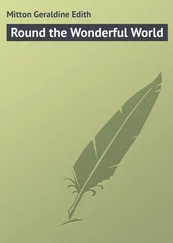“I want respect,” says Saudade. “That's the first thing. Then we'll talk about money. I want you to show me some respect, rich little Mr. Booger Eater, thinks his boogers taste better than other people's.” His mouth opens in an expression that smells of carrion sprinkled with high-proof liquor, and which somehow gives the impression that he's appreciating the wittiness of what he has just said. “Now, get in the car.” He grabs the baseball bat with its threatening inscription and throws it onto the backseat.
Giraut gets into the passenger seat. He places his attaché case with the combination lock on his knees.
“Good boy.” Saudade burps and turns the ignition key. “Now leave your wallet and cell phone in the glove compartment. We're going to the beach. What better place. The people in this city don't appreciate their beaches.”
Five minutes later, Saudade's black Volvo heads out of downtown along the Coastal Road toward the beaches near the mouth of the Besós River. Beyond the fish-shaped sculptures of the Olympic Port. Beyond the not-quite-identical towers of the Hotel Arts and the Mapfre insurance company. Like those puzzles in puzzle magazines where the reader has to mark in pencil the differences between two drawings. Saudade handles the steering wheel with his right hand and brings a can of beer to his lips with the left. Between his feet is a box of twelve cans of beer with at least four missing. There is a smashed empty can beside the gas pedal. It crashes into the side of Saudade's sneaker at regular intervals. Seen from close up, Saudade's powder blue and white Umbro sweat suit is much dirtier than it looked from outside the car. On his right wrist, partially visible under the sleeve, Saudade has a tattoo that reads “BB BB.” In the green ink of discolored tattoos.
“You like my tattoo, huh?” Saudade finishes the beer and tosses it out the open window. The black dashboard is filled with traces of white powder that makes you think of a cement surface with traces of snow once the snow has almost completely melted. “I did it back when there were still people in this city with balls. Oh, yeah.” The way he nods his head is that clichéd way people nod to transmit nostalgia for the good old days. “We made everyone respect us back then. Ten years ago. That was our best period. Especially when the team traveled. Fear traveled with us. And not one fuckin' Barça fan dared to come near our stadium. In the good old days when we had a stadium.” He spits through the open window. It is not clear whether the spitting is related to the story he's telling or not. “Milan, Bratislava. When we were runners-up for the UEFA. But in those days people had balls.”
Saudade inhales and puffs up his chest. Giraut watches as he raises his eyebrows high and adopts a pose somewhat like an opera singer getting ready to sing. A pose that is vaguely reminiscent of Russian choirs. Of boatmen on the Volga.
Real ees.
¡Tu nobleza justifica el adjetiii-vo!
Eres cluuub
A pesar de tu grandeza solo un cluuuub
Deportiii-vo.
¡El deporte es tu único objetiii-vo!
A coughing fit interrupts Saudade's vaguely Russian song. He turns the wheel and exits the Coastal Road at Bogatell. Some sort of no-man's-land of lots filled with garbage and remnants of construction separates the neighborhood from the beachfront bars and restaurants. There is not one single open place in sight on this Monday morning in February. Some of the places have sculptures made up of outdoor chairs piled up into complex shapes and chained together. Others have graffiti and varyingly threatening messages that probably haven't been cleaned off since the beginning of the summer season. Saudade parks the Volvo in a lot located right behind the row of beach restaurants and puts the keys in his pocket. Then he takes out several fifty-euro notes from Giraut's wallet and sticks them into the pocket of his sweatpants along with his cell phone. Giraut takes his empty wallet and watches as Saudade hides the baseball bat inside his sweatshirt and signals for him to get out of the car.
“Out,” he says. As if the sign he had made toward the outside of the car had left any room for doubt.
They both walk a few minutes along the sand with no apparent destination. The wind lifts papers and litter and every once in a while tosses a gust of sand onto the men. In spite of his being cold with his wool coat and Lino Rossi suit, Giraut doesn't notice any sign of cold from Saudade, who is only wearing his extremely dirty powder blue and white sweat suit.
“Everything I told you about was before I became a cop.” Saudade shrugs his shoulders. “Really I was still chasing the same scumbags. What do you think of that, little Mr. Fancy Pants? Three years on the force. You think you coulda done all I did in my life?” he asks rhetorically. With his eyes almost closed to keep the sand out. “People like you make me wanna puke. You think I don't know what you think about us? With your fancy houses and your fancy women and wherever it is you go on those trips.” His hands pat the long bulge of the baseball bat through the dirty powder blue and white fabric. He looks Giraut in the eye. “It's about time you started showing a little respect.”
Lucas Giraut studies the beach, searching for some tranquil element. Some of those proverbially tranquil elements that people go to the beach to find. In the distance, on the wind-rippled water, some sort of merchant ship with an entirely rust-colored hull seems to be simply floating immobile near the docks. The mountain of Montjuïc in the background is like one of those cliffs covered in mist that you find in old gothic novels set on the coast of Cornwall. The sea is the color of lead. The sky is the color of lead. The sand on the beach is a pale, dirty shade of gray that's not quite the color of lead. Juan de la Cruz Saudade seems to have switched gears, fondling the bat through the fabric of his sweatshirt and muttering under his breath while staring at his feet. Seagulls fly threateningly in circles over the only two people on the beach and the more aggressive ones are already landing near them, with their beaks open and their wings extended. Giraut walks over to where the waves reach the sand and sits down on the ground, at least three feet from the stripe of sand darkened by the strongest waves. A zigzagging line of dried seaweed and sundry litter marks the farthest limits of the waves' reach. Like a scientific diagram. Like the zigzagging lines of a seismic diagram or an electrocardiogram.
Lucas Giraut sighs. He takes off his shoes and places them beside his attaché case, in which he carries a couple of magazines about antiques, as well as a book-restoring kit and a copy of the book Learn to Restore Books in Just 100 Days, from the “Learn in Just 100 Days” series. Saudade watches Giraut and kneels down to take off his shoes, too. He pulls a can of beer out of his sweatshirt and opens it, spilling some sort of giant foam phlegm ball onto his front.
“You think you know what you're playing at but you don't,” he says to Giraut. “This isn't a game for faggy little rich kids like you. You could get hurt. You think you know Bocanegra because he was your daddy's little friend and all that, but the truth is you don't know shit.” He takes a sip of beer. Foam now also slips down his chin. “You don't have a fucking clue as to what Bocanegra would do to you if he found out you're fucking with Mr. Pirate Patch. He'd chop you up so small you'd fit through a tennis racket. And about what you asked me before.” He kneels to pick up a long, smooth stone from the zigzagging line of seaweed and litter that marks the reach of the waves and tosses it into the sea at that horizontal angle people use to make stones bounce along the water's surface. The stone just sinks among the waves. “I want fifty grand now and fifty grand at the end of the month. Then we'll talk some more. That old crap you got in your store must be worth a lot of money. I bet you don't even notice when you sell a coupla pieces.”
Читать дальше












